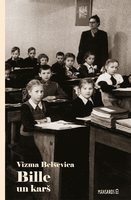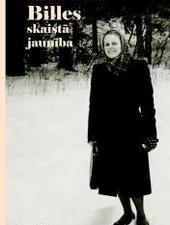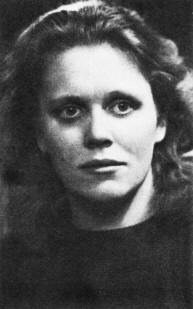


Books in series

Bille
1992

Bille un karš
1996

Billes skaistā jaunība
1999
Author

Vizma Belševica was a Latvian poet, writer and translator. She was nominated for the Nobel Prize in Literature. Receiving the Nobel prize was her childhood dream; she, as a poor but bright girl, spent much of her time reading classical literature. Belševica's work has been recognised: on December 6, 1990, she was elected honorary member of the Latvian Academy of Sciences; she has twice received the Spidola Award, which is the highest recognition in Latvian literature. Belševica has also received the highest award of the Latvian State, namely the Three Star Order. Vizma Belševica published her first poems in 1947; her first book of poetry appeared in 1955. Her most notable poetry collections are Jūra deg (The Sea is Burning, 1966), Gadu gredzeni (Annual Rings, 1969), Madarās (In My Lady's Bedstraw, 1976), Kamola tinēja (The Clew Winder, 1981), Dzeltu laiks (Autumn Time, 1987). Her short stories' collections are Ķikuraga stāsti (Stories from Kikurags, 1965), Nelaime mājās (Misfortune at Home, 1979), Lauztā sirds uz goda dēļa (Broken Heart on the Board of Honour, 1997). During the post-Soviet period, Belševica wrote three semi-autobiographical books – stories about the girl Bille, following her life from the late 1930s, throughout the first year of Soviet occupation of Latvia (1940–41), the Nazi occupation (1941–45), and the first post-war years under Stalin's regime: Bille (Bille, 1992, 95), Bille un karš (initial title: Bille dzīvo tālāk) (Bille and War, 1996), Billes skaistā jaunība (The Wonderful Youth of Bille, 1999). Its first edition was published by the Latvian publisher Mežābele in 1992 in the United States and only in 1995 in Latvia. Now this trilogy has been recognized as one of the most important works of Latvian literature of all times. It has been translated into Swedish, but not in English. Belševica's poetry and fiction has been translated in about 40 languages. Within the Soviet Union of the 1960s–1980s, several books of her selected poetry were published in Russian, Belarusian and Armenian. Her poems were translated into English by Inara Cedrins for the anthology Contemporary Latvian Poetry published by the University of Iowa Press in 1983. From the 1980s onwards, Belševica has been regularly present on the Swedish literary scene, (translator Juris Kronbergs), books of her poetry and Bille stories have enjoyed immense critical success and wide readership there. Her Selected Poems have been published also in Norway, Denmark and Iceland. Selected Short Stories – in Russia, Georgia and Germany. The Russian translation of the Bille trilogy has been published in Riga, Latvia. In her work she criticized the situation of oppressed nations in Soviet Union, therefore from 1971 to 1974 she was not allowed to publish. Her name could not be mentioned in media. KGB agents searched her apartment twice confiscating manuscripts and notes.